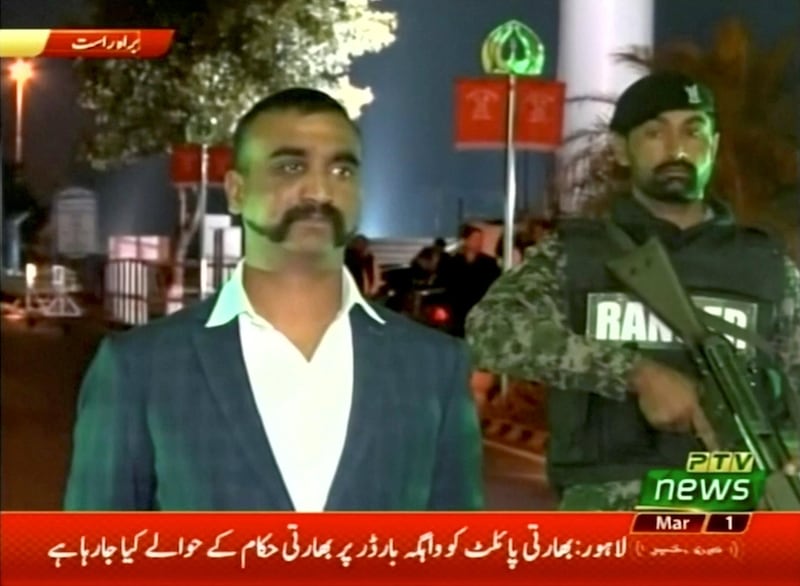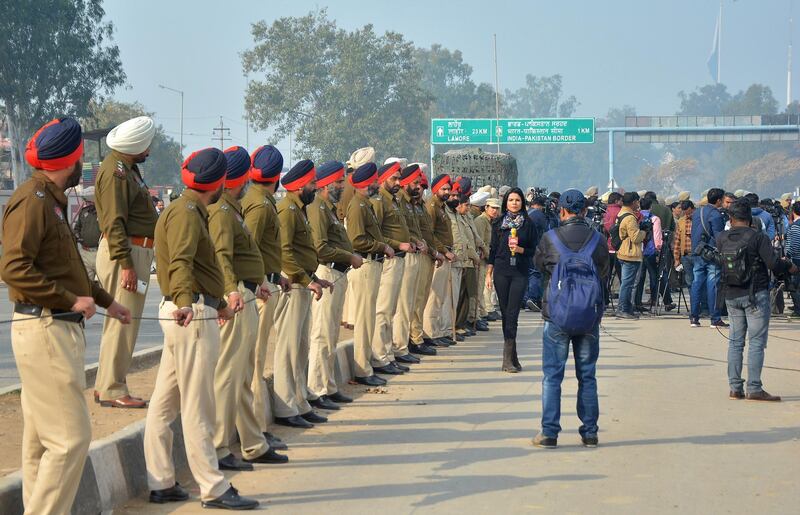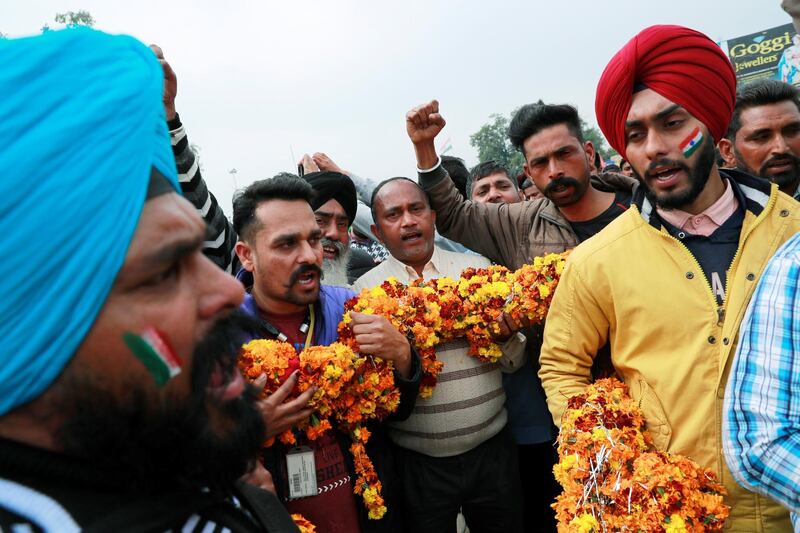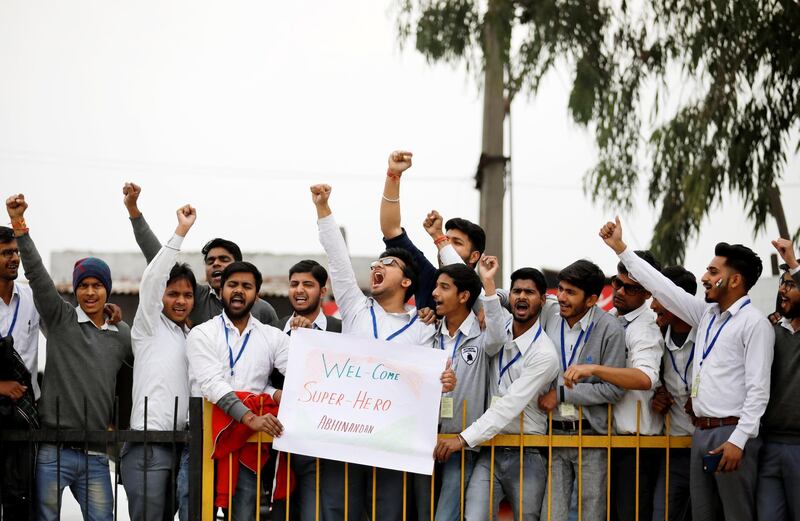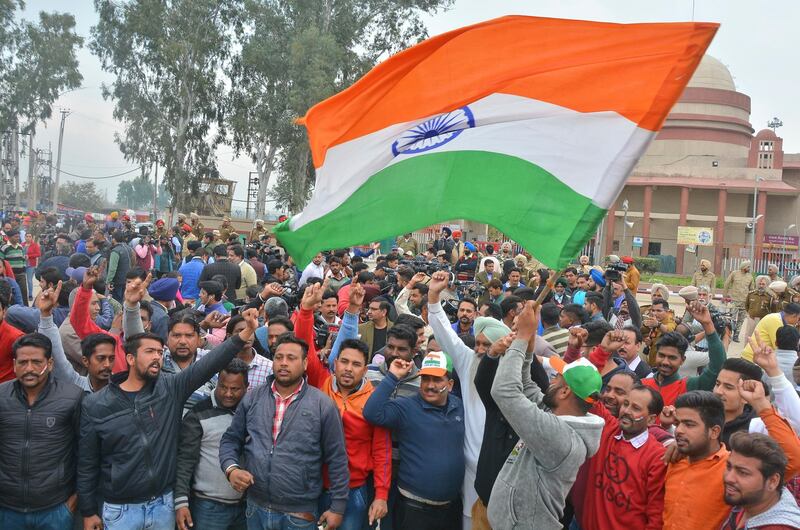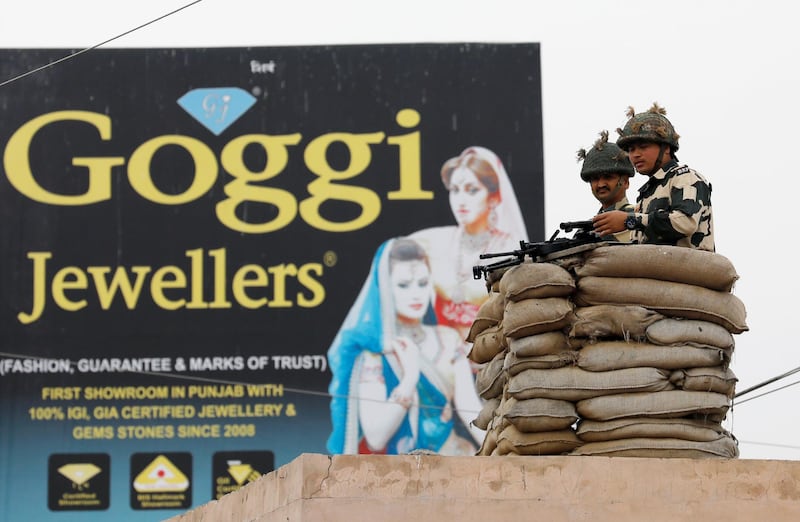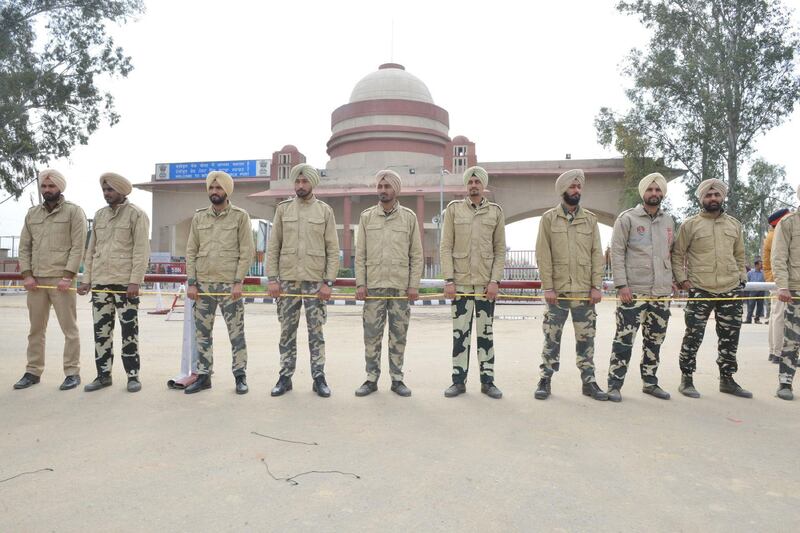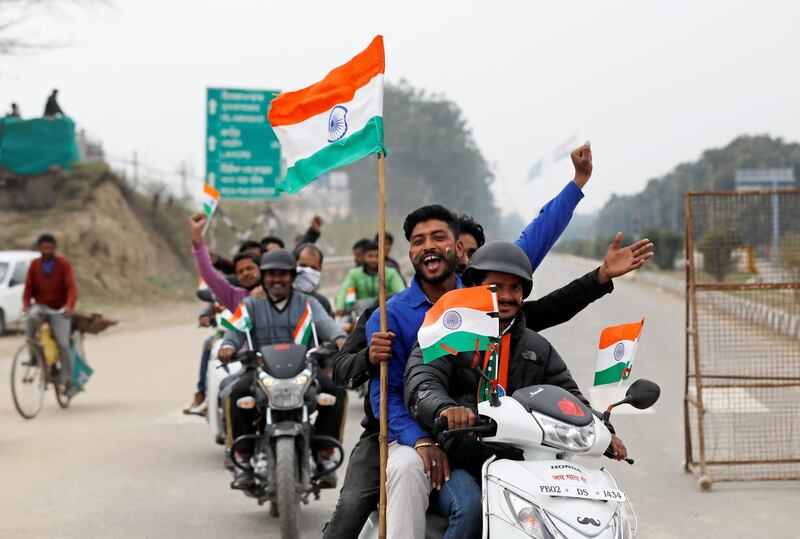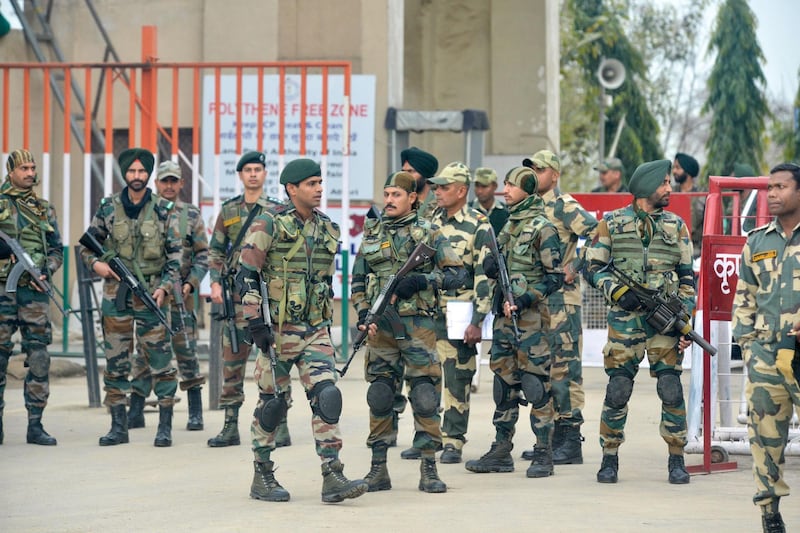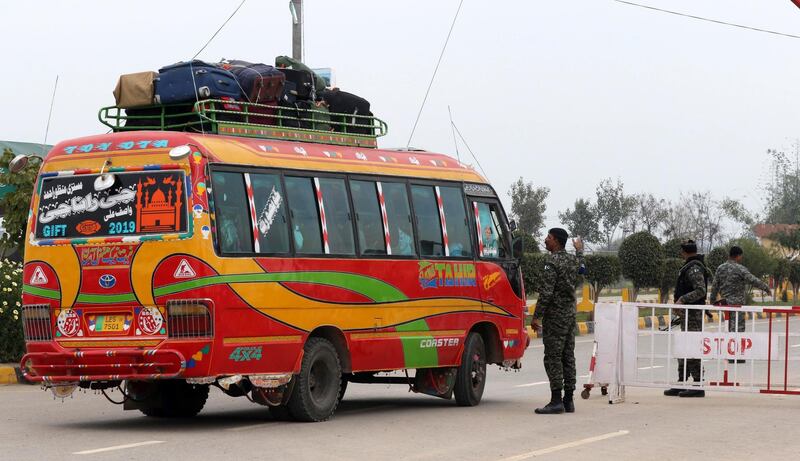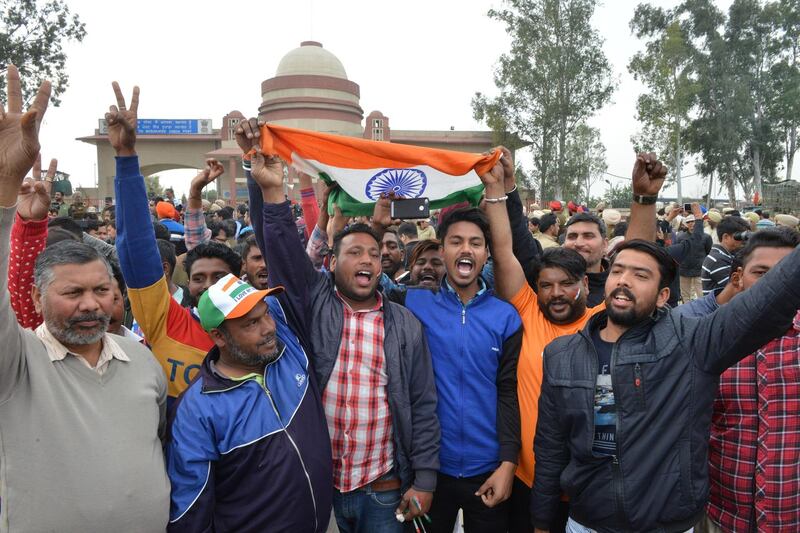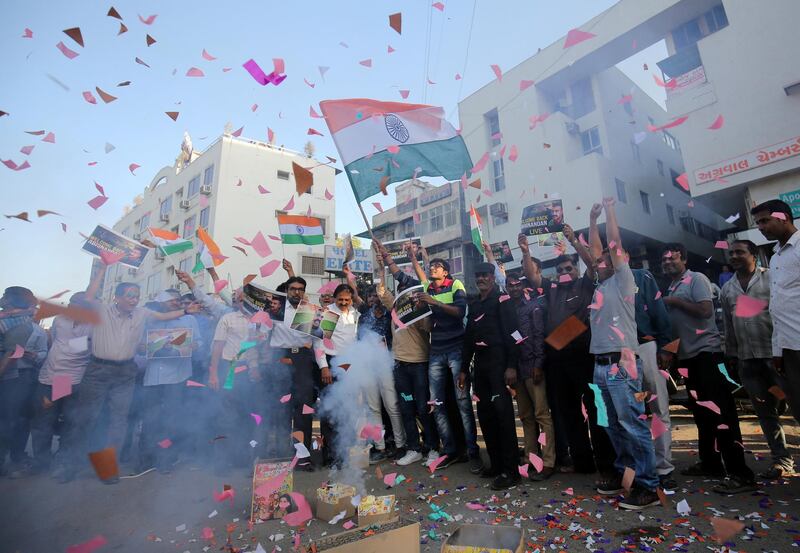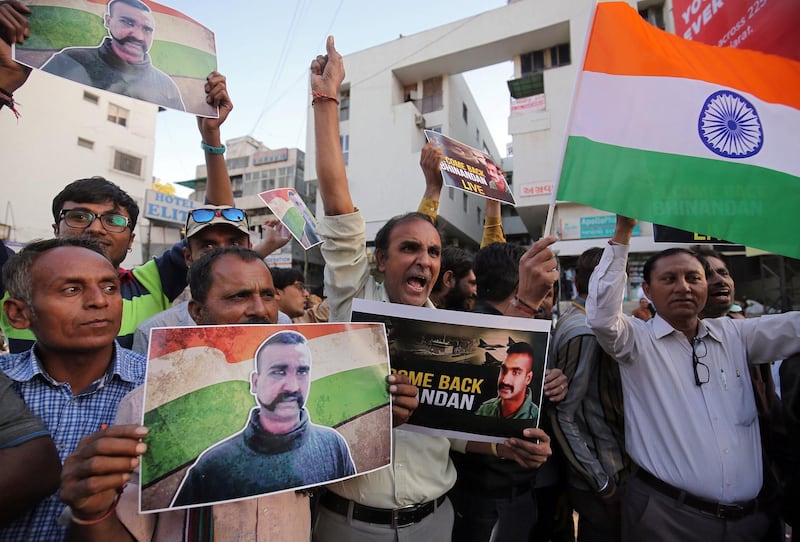An Indian Air Force pilot captured by Pakistan was returned to India at the Wagah border crossing on Friday to the cheers of hundreds of countrymen who gathered to give him a hero's welcome.
Wing Commander Abhinandan Varthaman's jet was shot down in a dogfight over the disputed region of Kashmir on Wednesday as Pakistani jets crossed into Indian territory in response to India's bombing of a suspected terrorist camp in Pakistan a day earlier
Pakistan said the pilot's release was intended de-escalate tensions following the exchanges.
Welcome Home Wing Commander Abhinandan!
— Narendra Modi (@narendramodi) March 1, 2019
The nation is proud of your exemplary courage.
Our armed forces are an inspiration for 130 crore Indians.
Vande Mataram!
Crowds on the Indian side of the border thinned out late on Friday as the wait for the return of the pilot dragged on. He had been expected to emerge in the afternoon and numerous false alarms excited the crowd.
However, the completion of procedural paperwork per the Geneva Convention delayed WCmdr Abhinandan's short walk back over the border, two senior Indian officials monitoring the release told The National. The pilot finally returned to India at around 9pm local time and was met by representatives of the Indian Air Force.
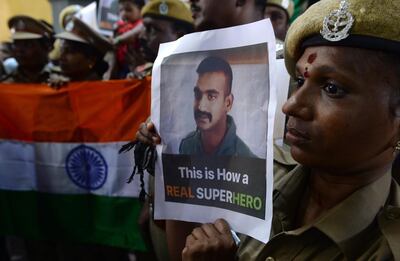
Pakistani Foreign Minister Shah Mahmood Qureshi told parliament earlier on Friday that the pilot was being freed in an effort to de-escalate a crisis between the nuclear-armed neighbours.
"As a gesture of peace and to de-escalate matters, the Indian pilot who is under arrest with us will be released today in the afternoon at the Wagah border," Mr Qureshi said.
His statement confirmed Prime Minister Imran Khan's bid to defuse two days of escalating tensions in which the two countries traded air strikes, gunfire and fought aerial combat.
"We have captured a pilot of India. As a gesture of peace we are going to release him to India tomorrow," Mr Khan said on Thursday. “But this de-escalation effort should not be considered as weakness."
India welcomed Mr Khan’s decision to free the pilot. Air Vice Marshal R J K Kapoor, an Indian Air Force spokesman, said the force was “extremely happy and looks forward to the return of the Indian pilot”.
The Wagah crossing gate is famed for hosting an elaborate daily ceremony by Indian and Pakistani soldiers at sundown. Crowds began gathering on the Indian side early on Friday to welcome the pilot, whose parents had travelled to Amritsar, the Indian city nearest to the crossing, on Thursday night.
Pakistan's decision to release the pilot followed calls by world leaders for Islamabad and New Delhi to de-escalate tensions, including from Sheikh Mohamed bin Zayed, Crown Prince of Abu Dhabi and Deputy Supreme Commander of the Armed Forces.
Sheikh Mohamed, who was on an official visit to Singapore, phoned the Indian and Pakistani prime ministers to stress the importance of "dealing wisely with recent developments and giving priority to dialogue and communication", according to a post on his Twitter account that was also released in Hindi and Urdu.
मोहम्मद बिन ज़ायद ने टेलिफ़ोन के ज़रिये भारतीय और पाकिस्तानी प्रधानमंत्रियों से हाल के घटनाक्रमों को समझदारी से निपटने और संवाद को प्राथमिकता देने के महत्व पर ज़ोर दिया।
— محمد بن زايد (@MohamedBinZayed) February 28, 2019
محمد بن زائد نے پاکستانی اور انڈین وزرائے اعظم کو کال کر کے موجودہ صورتحال میں دانشمندی کا مظاہرہ کرتے ہوئے گفتگواور تبادلہ خیال کی اہمیت پر زور دیا۔
— محمد بن زايد (@MohamedBinZayed) February 28, 2019
The pilot's release came as India and Pakistan forces fired shells across the de facto border separating the parts of Kashmir controlled by each country
India and Pakistan have fought two wars over Kashmir, which each claims in full but controls only in part, and regularly exchange fire across the Line of Control dividing Himalayan territory. The latest crisis was triggered by a suicide car bombing on February 14 that killed 40 Indian soldiers and was claimed by Jaish-e-Mohammed, a terrorist group based in Pakistan.
National outrage over the high death toll put pressure on Indian Prime Minister Narendra Modi to respond to the attack, with a general election barely two months away.
Meanwhile, Pakistan's foreign minister said he would not attend the Organisation of Islamic Co-operation foreign ministers' meeting starting in Abu Dhabi on Friday because his Indian counterpart had been invited to the event. Mr Qureshi told parliament junior ministers and officials would be representing Pakistan instead.
Pakistan's civil aviation authority on Friday partially re-opened the country's air space, allowing travel to four major cities, another sign that tensions with India were de-escalating.
The agency issued a statement saying all domestic and international flights will be allowed to and from the cities of Karachi, Islamabad, Peshawar and Quetta.
It said other airports, including the one in Lahore, would remain closed until March 4.
